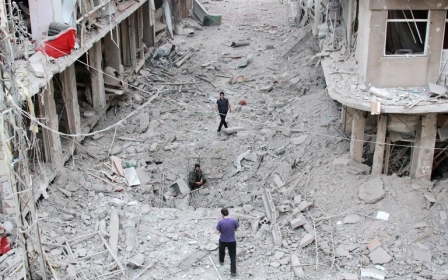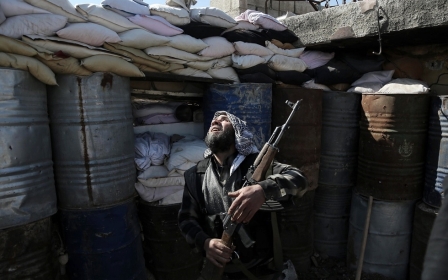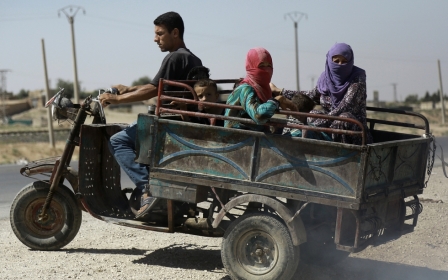US warns Syria not to fly near coalition troops

The Pentagon warned the Syrian government on Monday it is prepared to shoot down planes threatening US-led coalition forces in northern Syria, but stopped short of declaring a no-fly zone.
US military officials reacted furiously last week after Syrian jets targeted Kurdish forces and coalition advisers fighting Islamic State (IS) militants around the northeastern city of Hasakeh.
The US military scrambled fighters on at least two occasions to ward off the Syrian planes, but neither incident resulted in air-to-air contact.
It was apparently the first time the coalition scrambled jets in response to government action, and possibly the closest call yet in terms of Syrian forces wounding coalition advisers.
"We would continue to advise the Syrian regime to steer clear of those areas," Pentagon spokesman Peter Cook told reporters.
"We are going to defend our people on the ground and do what we need to defend them."
Despite the warning, Cook avoided using the politically charged term "no-fly zone".
Secretary of State John Kerry and Democratic presidential nominee Hillary Clinton have both said they support no-fly zones, but President Barack Obama is reluctant to commit resources and troops to enforce such a measure.
"It's not a no-fly zone," Cook said.
"But... the Syrian regime would be wise to avoid areas where coalition forces have been operating."
The United States has passed warnings to Syria via Russia, with which the US military has an established line of communication.
When pressed, Cook said the warning also extended to jets from Russia, which has been bombing in support of Assad since last year.
"If they threaten US forces, we always have the right to defend our forces," he said.
The United States would protect not only coalition advisers, but also partner forces on the ground - in this case Kurdish fighters.
America has for two years led an international coalition against IS, conducting daily strikes and working with local forces on the ground to help them fight the Islamic State group.
Russia started bombing in Syria last year, but most of its strikes have been in support of the Syrian President Bashar al-Assad.
In June, Russian aircraft conducted a series of air strikes near al-Tanf in southern Syria targeting US-backed counter-IS forces.
In that incident, the United States did not scramble jets, but the attack frayed an already tense relationship between the coalition and Russia.
Washington and Moscow have been in contact for weeks over establishing military cooperation to fight IS in Syria.
But Cook said such an agreement was far from a done deal.
"We are not there yet and the regime and Russia's recent actions only make it harder to consider any potential coordination," he said.
New MEE newsletter: Jerusalem Dispatch
Sign up to get the latest insights and analysis on Israel-Palestine, alongside Turkey Unpacked and other MEE newsletters
Middle East Eye delivers independent and unrivalled coverage and analysis of the Middle East, North Africa and beyond. To learn more about republishing this content and the associated fees, please fill out this form. More about MEE can be found here.




